ukraine
Latest
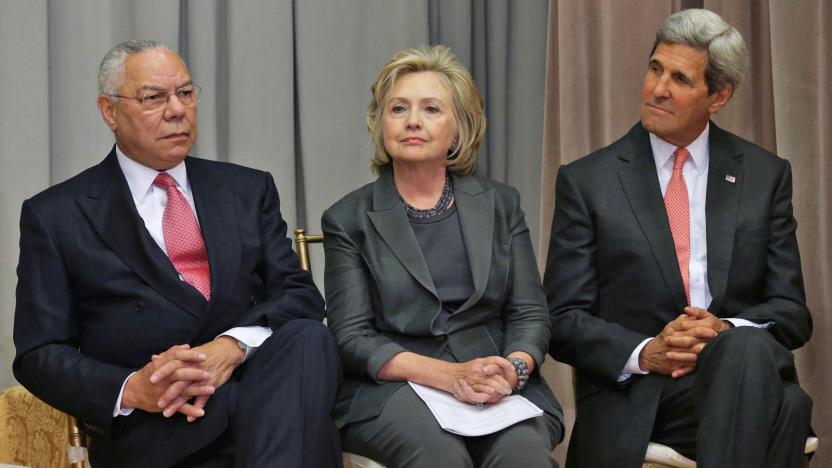
Russian hackers had hundreds of US targets in addition to the DNC
Various US agencies continue to look into the role Russia played in last year's presidential election, and targets of those investigations include interactions between Trump advisors and Russian officials, ads purchased by Russian agents through social media sites like Facebook and Twitter and whether the Kremlin was involved in the DNC email hacks of last year. In regards to the latter, Russia has been suspected of being behind the hacks for quite some time and just this week, reports have surfaced that the US Department of Justice has pinpointed six Russian officials it believes to have been involved in the hacks. However, a report released today by the Associated Press suggests that the group behind the DNC email breaches actually had a much wider range of targets.

Paul Manafort's password inspiration: Bond. James Bond.
Apparently, being involved in high-level political intrigue doesn't guarantee that you'll be any good at password management. Security researchers speaking to Motherboard have discovered that former Trump campaign manager and international lobbyist Paul Manafort used uncannily appropriate password variations for his old (2012-2013) Adobe and Dropbox accounts: Bond007. Yes, you read that correctly -- as Christina Wilkie notes, this was a secret foreign agent signing in as another secret foreign agent. Cheekiness aside, the James Bond nod underscores the tendency toward terrible password habits and how they can have very real consequences.
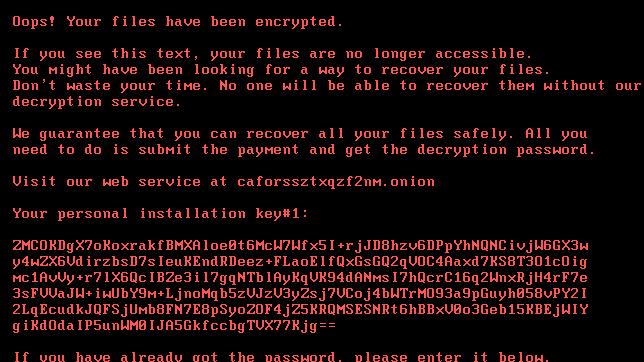
New ransomware is causing major issues across Europe and Russia
There's a new ransomware making the rounds today with confirmed targets in Russia, Ukraine, Turkey and Germany. Kaspersky Labs says that nearly 200 victims have been hit with the ransomware that's been dubbed Bad Rabbit.

Propaganda bots dominate social networks in some countries
It won't shock you to hear that governments and shady political groups will use social network bots in a bit to control the flow of information. But just how prevalent are they? Depending on where you live, they might just dictate the social media landscape. Oxford University researchers have published a study showing that "computational propaganda" (bots and other coordinated campaigns) is practically par for the course in some countries. In Russia, for instance, 45 percent of Twitter activity stems from "highly automated" accounts. And Ukraine is a "frontline" for just about everyone -- Russia, Ukrainian nationalists and civil society groups are all using digital propaganda systems in a bid to sway public opinion.
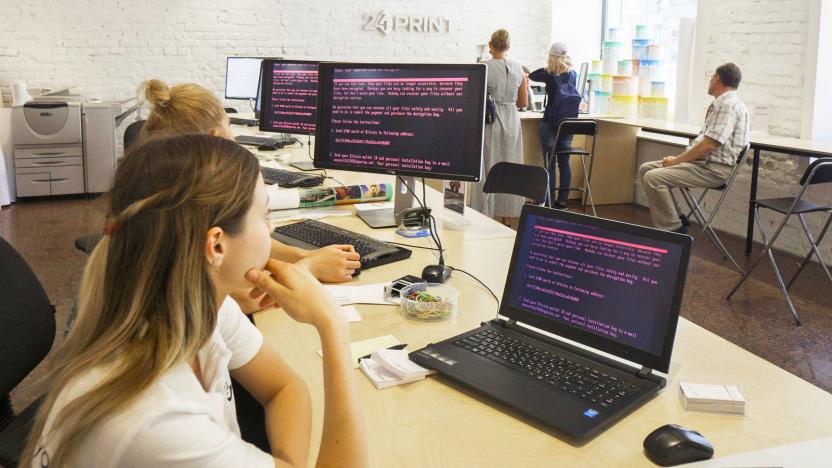
US hit by cyberattack that targeted Ukraine and Russia
Yesterday, a number of Ukrainian and Russian companies and state agencies reported being hit by a cyberattack, the results of which ranged from flight delays at Boryspil airport to a shutdown of Chernobyl nuclear power plant's automatic radiation monitoring system. And while those two countries took the brunt of it, the virus at the root of the attack quickly spread throughout Europe and to Asia, Australia and the US.
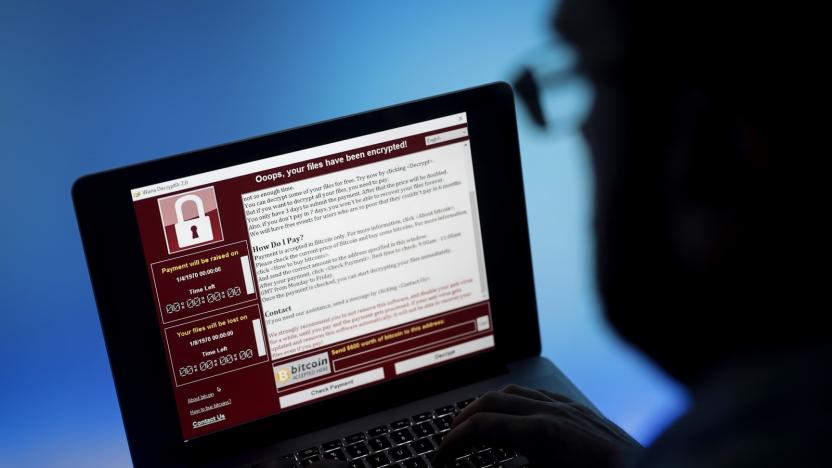
Large-scale cyberattack is spreading through Russia and Ukraine (updated)
A large-scale cyberattack is working its way through a number of Ukrainian and Russian targets today. So far, in Russia, oil producer Rosneft and metal company Evraz have been affected by the attack. In Ukraine, Boryspil airport, the banking system, a state power distributer and even the Ukrainian government have been hit.
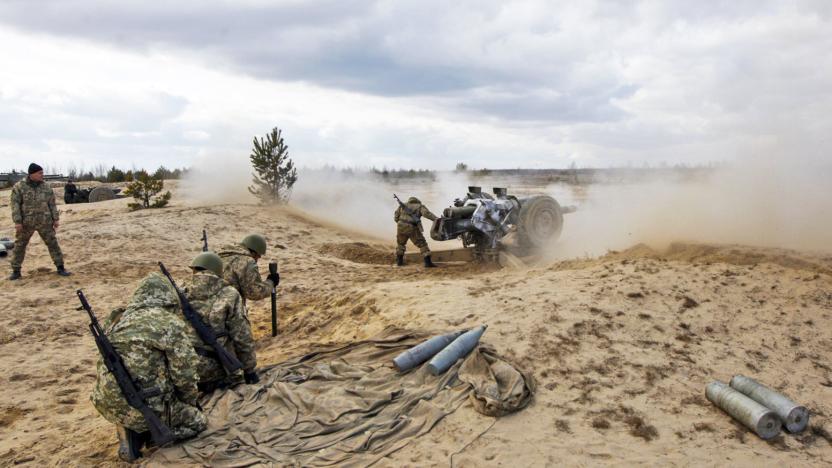
Russian hackers reportedly attack Ukrainian weapons, power grid
As the conflict in Eastern Ukraine escalates, two separate reports point to Russian hackers disrupting the power grid and weapons in the war-torn country. Outside of Kiev, between 100,000 and 200,000 people were plunged into darkness when portions of the Ukrenergo power company were knocked offline on December 18. The electricity was quickly restored but the situation is raised concerns of infrastructure hacking.

Ukraine's military wants HoloLens helmets for its tank commanders
It's not easy to see out of a tank (that's the point) but in order to be effective on the battlefield, their crews need to know what's going on around them. Modern tanks often have a variety cameras mounted to their exteriors to help the soldiers inside get a better view but crews still have to rely on monitors in the cabin to see out. However, a new HoloLens-enabled helmet from Limpid Armor can give tank commanders a better view of their surroundings just by turning their heads.

Ukraine blames Russians for a cyberattack on Kiev's airport
Ukraine's problems with cyberattacks aren't over -- far from it. The country reports that intruders attacked the network for Kiev's main airport, Boryspil, last week. Officials aren't accusing any specific party just yet, but they note that the attack originated from a server in Russia. Moreover, there are hints that this might be linked to the power grid attacks from December, which leaned on a common trojan (BlackEnergy) to get in.

Hackers shut down power grid in Ukraine
Malware is no longer reserved for the millions of consumer PCs all over the world -- it's now used in corporate espionage, as tool to disrupt the infrastructure of entire countries. It's been revealed that just on December 23rd, attackers were successfully able to infect computers belonging to the Ukrainian national grid, which resulted in hundreds of homes in the Ivano-Frankivsk region going dark. It's thought to be the first cyber attack to result in a power outage.

Russia's head of censorship ***** after being censored on ********
An aide to Vladimir Putin has told Russians to leave Facebook after the head of the country's telecommunications regulator was censored by the social network. As the Moscow Times reports, Maxim Ksensov was given a 24-hour time out after posting an ethnic slur for Ukranians on his personal page. The paper believes that the word has now been blacklisted by the service and will be instantly deleted if it's found. In response, Putin aide Igor Shchegolev has instructed locals to abandon Facebook in favor of Vkontakte, its homegrown alternative.

Blizzard blocks 'World of Warcraft' and 'Diablo 3' in Crimea
Players in Crimea can no longer access Battle.net, the service that houses Blizzard games World of Warcraft, Diablo 3, Hearthstone and others, The Moscow Times reports. Blizzard blocked its games in response to US sanctions against Crimea -- Google, Apple, PayPal and Valve have also suspended service to the region, the site says. The Moscow Times pulled its Blizzard report from Russian site Geektimes.ru, which published an email sent to Crimean Battle.net users. "In accordance with current trade regulations relating to the region of Crimea, we are legally required to suspend access to your Battle.net account," a translation reads.

Pro-Russian cyberattacks bring down German government websites
The digital war over Ukraine isn't about to cool down any time soon. A group of pro-Russian hackers calling itself CyberBerkut is taking credit for cyberattacks that brought down German government websites, including those for Chancellor Angela Merkel, the foreign ministry and the lower parliament. Officials aren't pointing any fingers, but CyberBerkut is claiming that the breach is in retaliation for German support of the "criminal regime in Kiev." The attack came soon before German and Ukrainian leaders were going to meet, so the timing of the incident at least lines up with the group's motivations.

Ukraine rallies the Twitter troops as Russia invades
Strange as it may seem, wars aren't just fought with bullets and bombs anymore. Tweets and shares can at times be equally potent, and that's probably why Ukraine mounted a social offensive yesterday after Russian troops began engaging with domestic forces in the border town of Novoazovsk. The country's Foreign Ministry implored Twitter users retweet its message and to use the hashtags #RussiaInvadedUkraine and #UkraineUnderAttack to spread the word of Russia's incursion. It looks like the plan's working, too. #RussiaInvadedUkraine is the more popular of the two hashtags, and according to Topsy, it's been deployed in over 400,000 tweets over the past 24 hours.

Twitter's blocking of 'blasphemous' content raises questions over its censorship policy
At first glance, Twitter's international policy on censorship seems reasonable. If the laws of a particular country require content to be locally blocked, then Twitter will adhere to that, deeming it to be a lesser evil than having the social network blocked in its entirety. This is what's just happened in Pakistan, where five requests from a government office have, for the first time, resulted in "blasphemous" and "unethical" tweets being blocked to Pakistani users -- including crude drawings of the Prophet Muhammad. This successfully avoided a repetition of what happened two years ago, when similar content temporarily led Pakistan to deploy a site-wan ban against twitter.com. However, critics say that, in practice, Twitter's policy isn't working fairly, because it's giving too much power to would-be censors who, even within their own countries, don't actually have any authority to block or delete content.

NASA suspends most collaborative work with Russia due to Ukraine tensions
Blaming Russia's "ongoing violation of Ukraine's sovereignty and territorial integrity," NASA has announced that it's suspending nearly all of its engagements with Roscosmos, the Russian space agency. Cooperation will, however, continue on the International Space Station "to maintain safe and continuous operation." The Space Agency says it's still committed to future human spaceflight launches on US soil, but without Russian assistance or extra funding, these will will have to wait until 2017. "The choice here is between fully funding the plan to bring space launches back to America or continuing to send millions of dollars to the Russians. It's that simple."

The Joystiq Indie Pitch: Humans Must Answer
Indie developers are the starving artists of the video-game world, often brilliant and innovative, but also misunderstood, underfunded and more prone to writing free-form poetry on their LiveJournals. This week, former GSC developer and co-founder of Sumom Games, Eugeny Yatsuk, talks space chickens and shmups with Humans Must Answer. The babies are Yatsuk, co-founder Denis Matveenko and artist Olexa, by Olexa. What's your game called and what's it about?Humans Must Answer. It's a shmup, and one most will recognize as having an old-school vibe about it. You play as the pilot of a scout ship called The Golden Eagle, which is manned by chickens – they like to think they're a higher species of bird than they are.They're on the lookout for something (we're not saying quite yet) and discover it within the solar system that us humans inhabit. As it is set far into the future, humans have expanded to the other planets and set up a number of industries upon them. They also have a huge legion of robots operating for them around space. So the enemies you'll come across consist of robots and humans. Yes, humans are enemies – there are far too many plots about evil aliens when, in fact, humans are most likely more evil than anything we could fictionalize.The chickens attempt to contact them in a friendly manner but the humans respond by firing at them, which isn't particularly nice. They live to regret it though because we let you, the player, go on an explosive rampage against the aggressors. There is a purpose behind it other than mere carnage though, but that doesn't appear until later in the game's narrative.How does working on your own indie project compare to working on a larger series such as S.T.A.L.K.E.R.?Very different. Faster decisions and far fewer constraints. It's a very good feeling to be the author and be responsible for all aspects of the game, and not just some cogs as part of a big company.I know some guys who work on bigger projects and ownership of their creations boils down to things like, "I made that table and chair on Level 25." You start to fear for yourself when hearing this and want to avoid ever being in that situation. When I am 40 years old I'll look at what I have created in my life. I hope to be proud of it.%Gallery-170198%

LG slips out Optimus L3 DualSim for Russia and Ukraine, keeps you in touch with both Kiev and Kursk
LG's Optimus L3 was always designed with modest ambitions -- mostly of scooping up the starter smartphone crowd -- but a new variant for Russia and the Ukraine has our ears perked. The tiny L3 DualSim includes two SIM slots to let locals hop between two different phone numbers with a switch. Ostensibly it's to give jetsetting businesspeople a way to switch between their home and work phone lines, although the abundance of prepaid service options in the two countries makes us think there's some cost-saving involved as well. The tweaked L3 isn't just another dual-SIM conversion; LG has also seen fit to overcome qualms about performance with an 800MHz Snapdragon replacing the 600MHz of the original. Sadly, we're not seeing any upgrades to the creaky Android 2.3 install or the 3-megapixel camera, so this won't let you get a shrunken L5 on the cheap. At a price of 1,500 Ukranian grivnas (6,169 Russian rubles, or $186) without a contract, however, we suspect many Muscovites and Sevastopolians won't have objections to picking up the L3 DualSim for themselves come the July release.

Microsoft and Nokia bring enhanced traffic data to Windows Phone, announce international plans
Cross-pollination is a beautiful thing. In the natural world, it brings bountiful harvests and pretty flowers. In the mobile world, we benefit from the sharing of ideas and technologies. Case in point is Windows Phone, as Microsoft has just announced that it's adopted traffic information from Nokia into the Maps app of its mobile OS. In addition to providing Windows Phone users in the US with more detailed overviews of traffic flows and congestion, the functionality will soon become available for many cities across the globe. Perhaps the move shouldn't come as a total surprise, as just last month, Microsoft revealed the inclusion of Nokia's "Where" platform within Bing Maps. As for future availability, citizens of Austria, Belgium, Brazil, Denmark, Finland, France, Germany, Greece, India, Indonesia, Ireland, Italy, Luxembourg, Mexico, Netherlands, Norway, Poland, Portugal, Russia, South Africa, Spain, Sweden, Switzerland, Turkey, Ukraine and the United Kingdom will benefit from the sharing of technologies within the next few weeks. For the moment, however, just hop the break, where you can see the before / after traffic data that's now available to Los Angeles residents.

HTC Desire V makes its European debut with dual-SIM capabilities, keeps your affairs in order
Whether you travel a lot, have to deal with spotty coverage or straight up lead a double life, HTC has a new dual-SIM smartphone for you with the Desire V. The handset is a first of its kind from the company for its European audience, which is said to debut first in Ukraine at a cost of 3,800 грн (approx. $470). The Desire V is an Android 4.0 smartphone with Sense 4 and is based on the Qualcomm MSM7227A SoC. Its spec sheet is quite decent, which includes a 1GHz CPU, a 4-inch WVGA display and a 5-megapixel camera. You'll also find 512MB of RAM, and while the phone offers just 4GB of internal storage, it also includes a microSD card slot and 25GB of storage through Dropbox. Only one SIM will support data connections, however, as the latter is limited to GSM/GPRS connections -- still fine for voice, but keep that in mind. You'll see the Desire V hit the streets next month, which'll give you enough time to get your affairs in order (or disorder, as the case may be).










